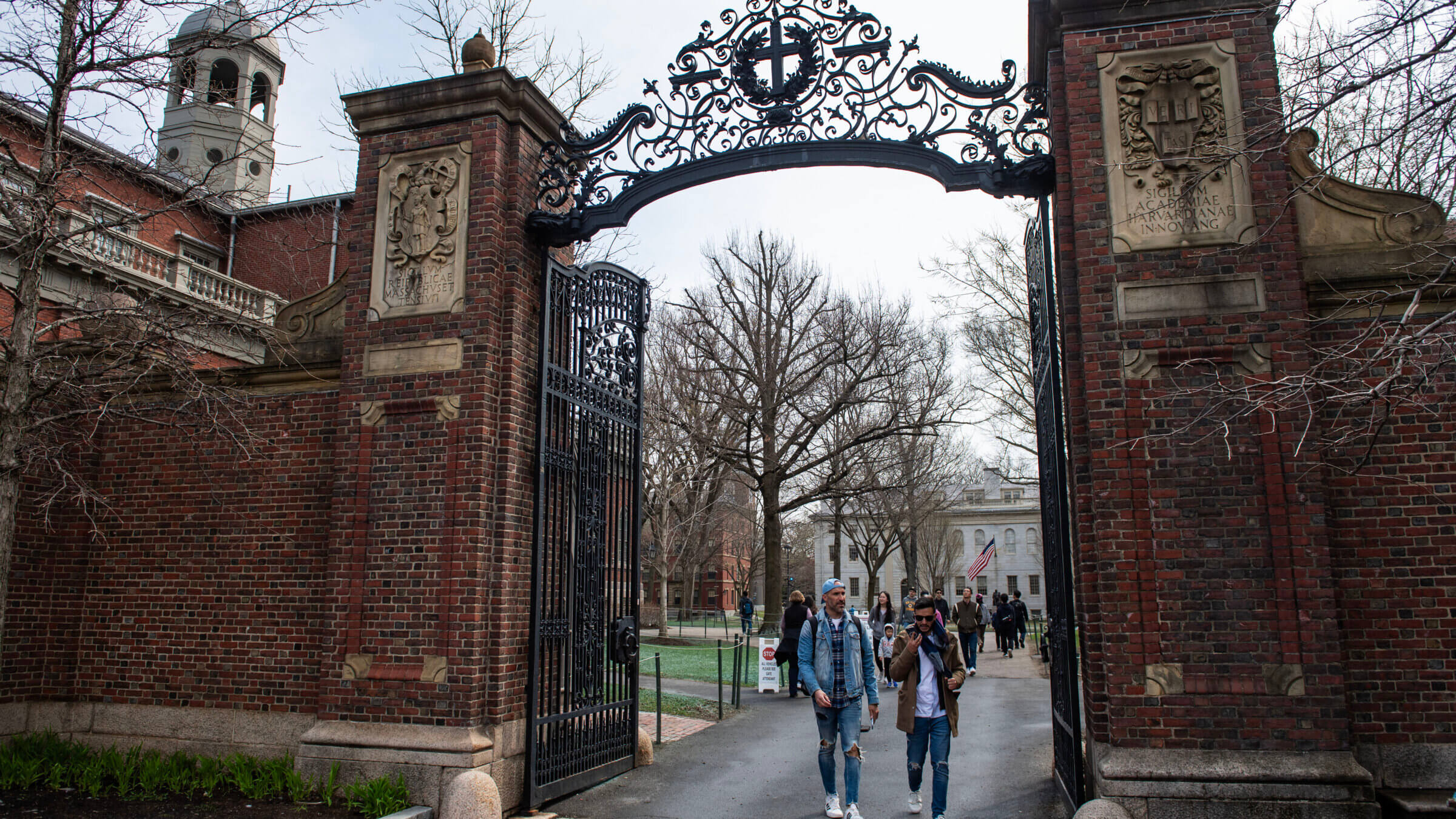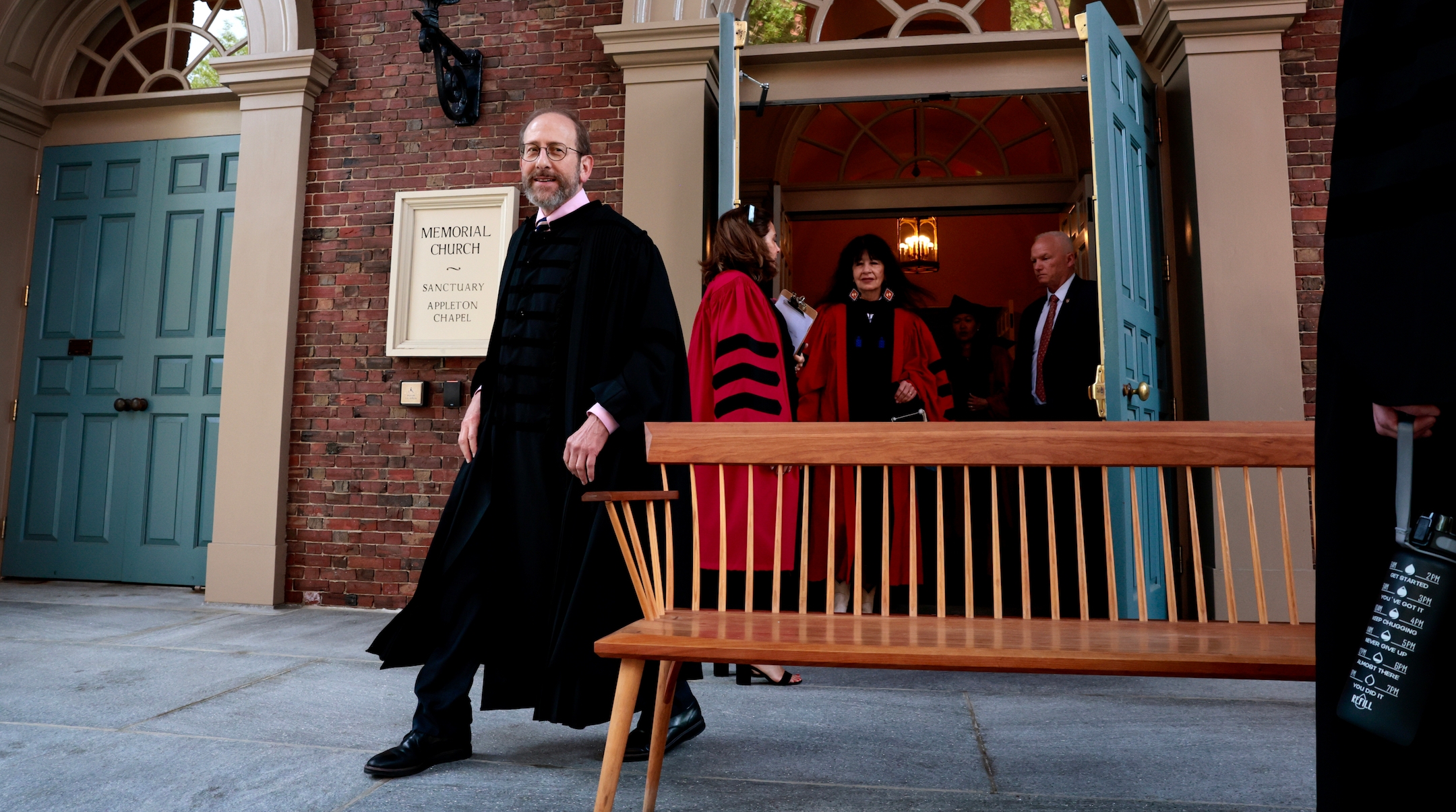At Harvard, reports on antisemitism and anti-Palestinian bias reflect campus conflict over Israel
The antisemitism task force’s report contrasted with one focused on anti-Palestinian bias

Harvard University. Photo by Getty Images
Harvard released two reports Tuesday that describe widely divergent views of campus life over the past two years, with students on both sides of the Israeli-Palestinian conflict describing incidents of discrimination and alienation at the nation’s most prestigious university.
The highly anticipated report with findings from the school’s task force on combating antisemitism and anti-Israeli bias was released alongside a similar document on anti-Muslim, anti-Arab and anti-Palestinian bias.
Both reports described a polarized campus where students and faculty were afraid to voice their views about Israel and the war in Gaza, and faced retaliation when they did so. But the culprits differed: The antisemitism task force blamed the student body’s increasingly hostile views toward Israel, and an embrace of more strident and disruptive forms of activism, for the painful sense of social isolation many Jewish students described.
“Jews are now being treated like Republicans were when I was in college,” a graduate student who had also attended Harvard as an undergraduate told the report’s authors.
In contrast, the anti-Palestinian bias task force reported that many Arab and Muslim students and staff felt that school administrators and official policies were deeply biased against them. “Ultimately, many feel that no one in leadership cares about them — that they have been abandoned,” the report stated.
The two reports, which were commissioned by Harvard President Alan Garber, come at a pivotal time for the university, which is engaged in a fierce legal battle with the Trump administration over its handling of antisemitism on campus.
After federal officials sent Harvard a letter April 11 demanding that the school make a series of sweeping changes or face the loss of billions in government grants, Garber announced that the university would fight the administration in court. The White House has since suspended more than $2 billion in funds and threatened to revoke Harvard’s tax-exempt status.
But Garber and other Harvard leaders have walked a fine line by simultaneously agreeing that the school has a problem with antisemitism, and previously seeking to appease the Trump administration, while still insisting that any change must come from within the university.
The report from the antisemitism task force, which was led by Jared Ellias, a law professor, and Derek Penslar, a scholar of Jewish history, said in a note to readers that “we are concerned that external parties, even if well-intentioned, will seek to compel adoption of some of our proposed reforms. If they do so, they will make it more difficult for Harvard to fix itself.”
Rabbi Hirschy Zarchi, who runs Harvard Chabad, said he was optimistic that the report would “empower those in authority and give them whatever further evidence, documentation or exhibits that they needed to take the action that we’re really, we’re waiting for.”
Two views of campus
The antisemitism task force said that many Jewish students felt that, since the Israel-Hamas war broke out two years ago, “their presence had become triggering, or the subject of political controversy” and they found themselves “on the wrong side of a political binary that provided no room for the complexity of history or current politics.”
One student recounted being told that she needed to modify a story about her grandfather fleeing the Nazis to omit that he settled in British-mandate Palestine because it was “not tasteful.”
“I asked ‘what is not tasteful?’” the student recalled, and one of the event organizers “laughed in my face and said, ‘oh my God.’”
The report’s authors were careful not to make sweeping determinations about what was and wasn’t antisemitic — a frequent source of debate — and rather described their focus as “identity-based bias” that prevents Jews at Harvard from fully participating in campus life.
Israeli students, especially, described people ending conversations with them after learning where they were from, while other Jewish students said that they faced social consequences if they did not “condemn Israel to prove they were ‘one of the good ones.’”
They described a dynamic in which allegations of antisemitism were dismissed by community members or left out of anti-discrimination training sessions on campus.
“There is an ideological effort underway to weaken the post-World War II social consensus that antisemitism is a form of bias, like anti-Black racism or xenophobia, that society should stigmatize and guard against,” the report stated.
But Arab and Muslim students — and others who identify as pro-Palestinian at Harvard — described a mirror opposite view of the issue in which claims of antisemitism are given special treatment by the administration while their own complaints are dismissed.
One student pointed to the billboard trucks hired by pro-Israel organizations to display the names, faces and sometimes contact information of student protest leaders. “There have been trucks driving around campus for months, displaying the faces of Muslim students,” the student said. “If there were antisemitic trucks driving around campus and planes flying over with antisemitic slogans, I cannot help but believe Harvard would have done more to stop it.”
And while the antisemitism report said faculty at some Harvard departments worried that their colleagues would not approve the hiring of a Zionist faculty member, the anti-Palestinian task force report highlighted a faculty member who said they were afraid to express sympathy for Palestinians “because it could hurt my chances of obtaining tenure.”
The two reports did not appear to directly reference one another, although the antisemitism task force spoke with non-Jewish students — including Arab-Israeli students — and the anti-Palestinian task force spoke with Jews and other community members who were not Arab or Muslim but identified as pro-Palestinian.
Rachel Florman, a Jewish student at Harvard Divinity School, said the choice to release the two reports as separate documents bothered her because it suggested a deeper division than actually existed on campus.
“A lot of us see ourselves as allies,” she said. “A threat to any member of our community is a threat to the rest of us.”
Challenge for the administration
The contrasting, and sometimes directly contradictory, views of how the Israeli-Palestinian conflict has played out at Harvard pose a challenge for Garber, who wrote in a letter accompanying the reports that “Harvard cannot — and will not — abide bigotry.”

He pledged to work on implementing the task force recommendations, including by “nurturing vibrant debate and open speech in ways that encourage everyone to express their ideas freely; preserving the right to protest and dissent while avoiding disruption, harassment, and threats; and, when our policies are violated, ensuring that our disciplinary processes are fair, consistent, and effective.”
Zarchi, the Chabad rabbi, said things have already improved at Harvard relative to the height of the protests and that he had confidence in Garber’s leadership.
“I am hopeful,” Zarchi said.
Benyamin Cohen contributed reporting.
















